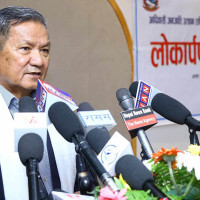- Saturday, 30 August 2025
Bubble tea shops mushrooming at Basantapur
BY SUSHMA MAHARJAN,Kathmandu, Jan. 12: Basantapur, which holds historical and cultural significance, has become a bubble tea hub in eyes of many people recently. When we walk across the streets and alleys of Basantapur, we can easily find bubble tea shops after every five to ten houses. Currently, there are more than 25 bubble tea shops in this small and crowded area which is also the heart of the capital.
Bonum Cha, first bubble tea shop in Basantapur, sells around 250-300 cups of bubble tea every day. Sudha Adhikari, founder of the shop, informed that the selling would increase by additional 100 cups every day during the summer. They have 35 different flavours with prices ranging from Rs. 200 to Rs 350. Some of their popular drinks are strawberry and blueberry bubble tea, matcha tea, muddy bubble tea and fresh fruits-based bubble tea. Sudha who had started the business in February 2021 has even expanded the outlet in Thamel and is also thinking of expanding it to Patan and increase the variety of flavours.
Bubble tea is a Taiwanese tea variant. It is a combination of tea, fruits, flavours, boba and is distinct from Nepali tea. It’s particulary popular among the youngsters. Sudha said that the competition had increased in the market. She expressed her concern that there should be a healthy competition and one should focus on serving the quality drink instead of quantity. According to her, bubble tea could be taken as a healthy drink since they had been using fresh fruit crusts, limes, matcha and quality products.
Even though teenagers are mostly seen fond of bubble tea, people of other age groups are also seen enjoying the drink. While touring the Basantapur area, we can see people carrying and drinking bubble tea. Reeya Sharma, 18, a college student, said that the drinks look very cool and taste delicious. “The packaging is very handy and I can take it anywhere. So I prefer this drink to tea or coffee,” she added.
Anil Thapa, owner of the Melbourne Cafe in Basantapur, said that it had been a neighbourhood pressure for him to add bubble tea on the menu. Thapa said that one out of five customers ask for bubble tea at his cafeteria. “I just opened my cafeteria two weeks ago. It’s a fast food-based cafe. But since there is a high demand of bubble tea in the area, I have added five different flavours of the drink on the menu to attract more customers,” he said. Thapa added that he was not a professional bobarista (person who prepares boba drink) and had learned preparing drink online. For now, he is using raw materials available in the Nepali market.
Similarly, Comic Cafe, which was first designed for anime merchandise store, has also been selling bubble tea. The cafe sells around 150-200 cups of bubble tea every day of which the starting price is Rs. 250, informed cashier of the cafe Tshering Lama. The shop
serves more than 10 flavours including mango, matcha, strawberry, blueberry, chocolate and other. She said in early 2022, after a year of opening of cafe in Basantapur, they had started selling bubble tea.
There were only one or two bubble tea shops in Basantapur back then but people started going crazy for it, she added. Stating that the bubble tea had been a money-making business, she said that the competition has increased a lot since the bubble tea shops have grown like mushroom in the area.
According to Tshering, the sales amounts to around Rs. 50,000 per day. They have been buying the raw materials from Jammy’s Bubble Tea. Jammy’s is the one who had first introduced bubble tea drinks in Nepal in 2011. It imports raw materials mostly from Taiwan and distributes to more than 70 bubble tea stores in Nepal.
In Basantapur, most of the bubble tea types are priced from Rs. 250 which seems quite expensive for ordinary people. When asked why the drink costs so high, Sudha informed that 90 per cent of the raw materials for the drink had to be imported from China since it was difficult to find basic ingredients like clustered milk, boba, and flavours in Nepal.
Stating that the price could be adjusted if the raw materials were easily available, she pointed out that this offered investors an opportunity to invest in production of raw materials in the country and earn good income.
But while comparing the price of the drink to the country from where the essential ingredients are imported i.e. China, the price of drink is still is expensive in Nepal.
According to the website of CoCo Tea Shop (famous bubble tea shop in China which has more than 4,500 outlets worldwide) they serve the drinks starting from 9 yuan (NRS 173.9) to 25 yuan (NRS 483). The store sells more than 100 varieties depending on the season.



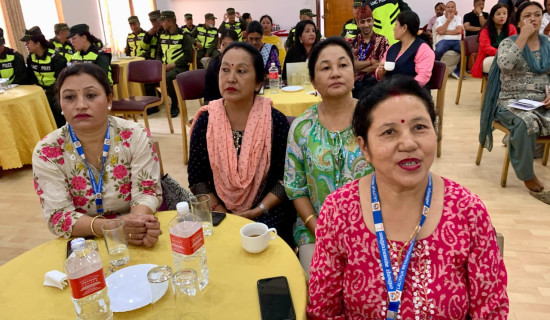
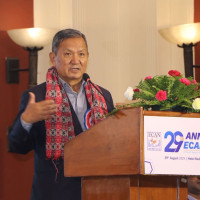
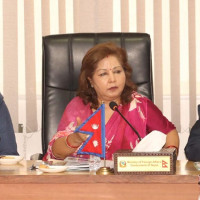
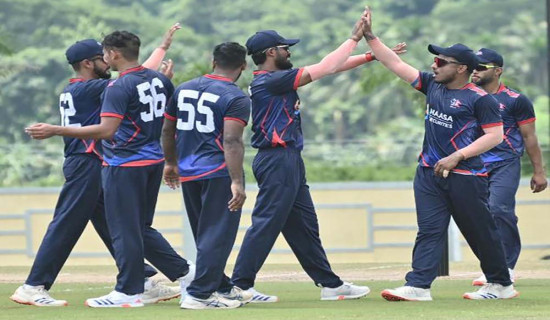
-square-thumb.jpg)
